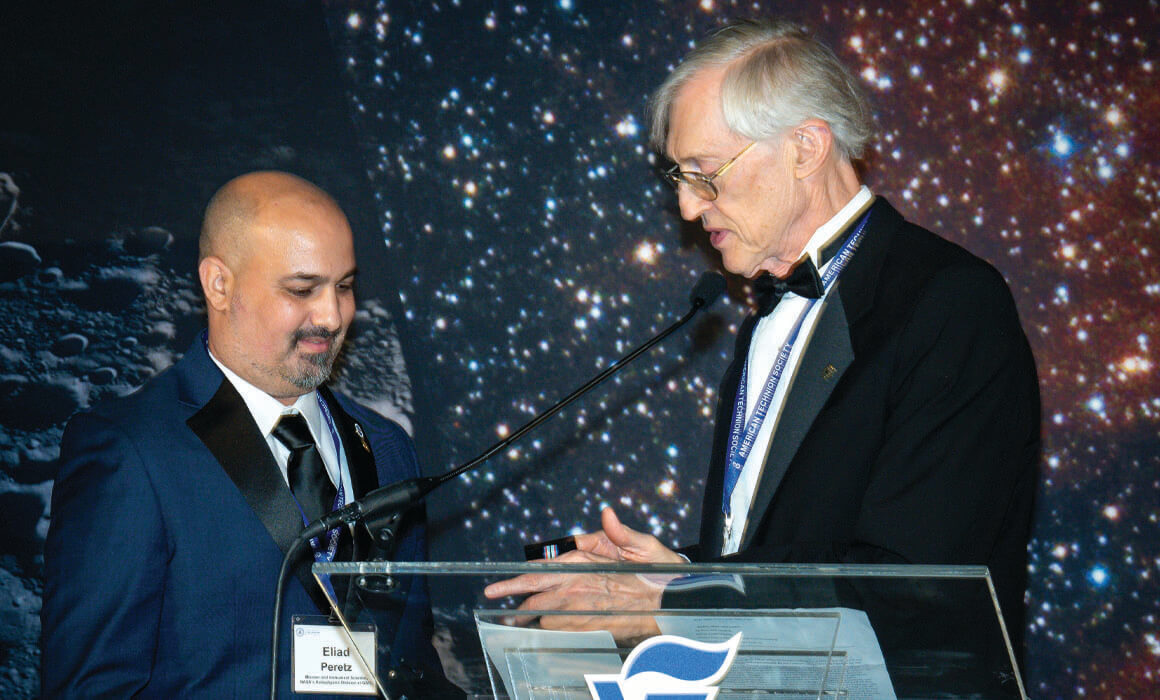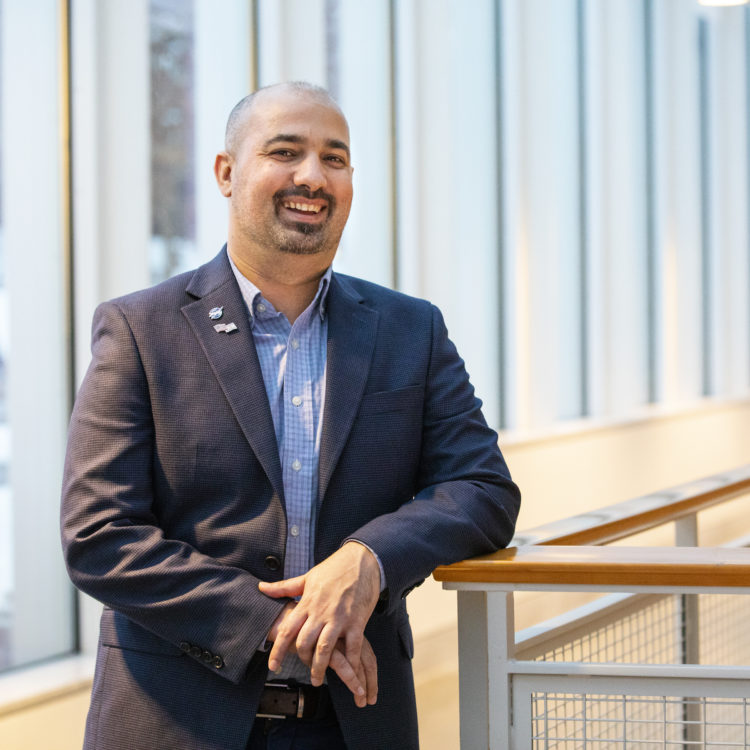Eliad Peretz ’13 was just 10 years old when he decided what he wanted to do in life. Helping his grandfather harvest olives, the pair would return at dusk, “lay back on blankets on the lawn, and look up at the sky,” Dr. Peretz recalled. “Those were the moments that helped me identify my path.” By fifth grade, he wrote what he called his first five-year plan, already knowing he wanted to work at the National Aeronautics and Space Administration (NASA).
Earlier this year, the NASA scientist and Technion alumnus was awarded the NASA Exceptional Achievement Medal — entering the pantheon of recipients that include the famed astronomer Carl Sagan and astronaut Alan Shepard. The honor was the latest in a string of prior awards, including the NASA Early Career Achievement Medal, making him the most awarded Israeli in the agency’s history.
Recognizing these achievements, which he credits in part to the Technion, the American Technion Society (ATS) feted Dr. Peretz with two days of celebration in Washington, D.C., in May. “This is a journey, and the Technion has been part of the journey for almost the last 20 years,” he said. “My connection to the Technion runs deep. Their fingerprints are everywhere.”
Dr. Peretz attended the Technion pre-academic program to prep in subjects not offered in his ultra-Orthodox primary school before earning his Technion bachelor’s degree in aerospace and aeronautical space engineering. He met his wife at the University while she was studying on a Fulbright scholarship.
In his role of mission and instrument scientist in the Heliophysics Division at the NASA Goddard Space Flight Center in Maryland, Dr. Peretz is responsible for defining scientific questions such as, “Are there habitable planets outside of the solar system?” as well as creating operation and execution plans for his projects. He also serves as lead researcher with Nobel Laureate John C. Mather on the ORCAS mission, a hybrid space and ground observatory, and the Remote Occulter, an orbiting starshade that works with extremely large telescopes on the ground to study planetary systems. In April 2023, Dr. Peretz and his team acquired the sharpest image ever taken by a telescope of planets several hundred light-years away.
“In space, you can’t be experts in everything,” he said. You need to be able to think critically, process information quickly, and understand how that information affects fields outside of your specialty — qualities imparted by a Technion education. “The Technion taught me to independently study new fields, to become an autodidact,” he said. Just like “diamonds are made under pressure and heat,” he said, the Technion’s competitive environment produces scientists who can manage multiple tough projects smoothly. “That’s priceless.”
Reflecting on the NASA medal and the ensuing ATS celebration he said, “I’m very happy that the Technion is a meaningful part of this achievement. For me, it’s closing the cycle.”

